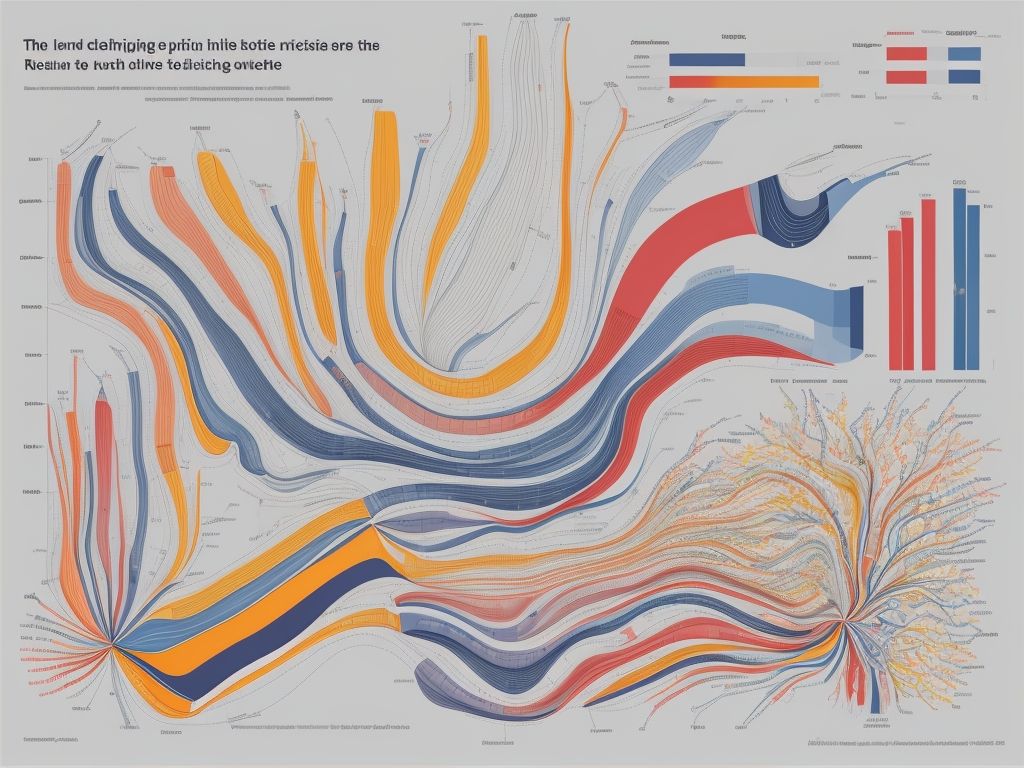Virginia Commonwealth University Polls: A Close Look at Virginia’s Voter Trends
Analysis of VCU Polling Methodology
VCU’s polling methodology is a careful and systematic process that involves sampling a diverse range of Virginia voters to ensure representative results. The team at VCU employs a combination of phone, online, and in-person surveys to gather data, allowing for a comprehensive analysis of voter sentiments and trends. By utilizing this multi-faceted approach, VCU is able to capture a more nuanced understanding of the political landscape in Virginia.
Furthermore, VCU’s polling methodology includes rigorous quality control measures to minimize bias and inaccuracies. The team takes great care to design questions that are clear and unbiased, ensuring that respondents provide genuine and reflective answers. Additionally, VCU regularly reviews and updates its polling techniques to adapt to changes in technology and demographics, ensuring the continued reliability and relevance of their data.
Historical Accuracy of VCU Polls in Virginia Elections
In assessing the historical accuracy of VCU polls in Virginia elections, it is evident that these polls have displayed a consistent track record of reliability over the years. By closely aligning their sampling methods with the diverse demographics of the state, VCU polls have successfully captured the pulse of Virginia voters, providing valuable insights into their shifting preferences and political inclinations. This adherence to methodological rigor has bolstered the credibility of VCU polls and solidified their reputation as a trusted source for gauging electoral dynamics in the state.
Moreover, the proficiency of VCU polls in accurately predicting election outcomes has been showcased through their ability to reflect the intricate nuances of Virginia’s political landscape. By meticulously analyzing voter trends and behavior patterns, VCU polls have managed to offer a comprehensive understanding of the electoral terrain, thereby enabling policymakers, analysts, and the public to make informed decisions based on data-driven insights. This proven record of historical accuracy underscores the significance of VCU polls in shaping the discourse surrounding Virginia elections and illuminating the prevailing sentiments of the electorate.
Key Findings from Recent VCU Polls on Virginia Voter Trends
In recent VCU polls on Virginia voter trends, an interesting pattern emerged regarding party affiliation among younger voters. The data indicated a noticeable shift towards independent voter registration among individuals aged 18 to 30, highlighting a potential trend of political nonconformity within this demographic group. This finding suggests that younger voters in Virginia are increasingly opting for a more centrist or unaligned political stance, challenging the traditional notions of partisan loyalty within this age bracket.
Additionally, the VCU polls also revealed a significant disparity in voter priorities based on geographical location within the state. Urban voters showed a strong preference for policies addressing social issues such as healthcare and education, whereas rural voters exhibited a greater emphasis on economic concerns like job creation and infrastructure development. This divergence in voter preferences underscores the diverse and heterogeneous nature of Virginia’s electorate, emphasizing the need for political campaigns to tailor their messages according to the specific priorities of different regions within the state.
Impact of Demographics on VCU Poll Results in Virginia
Demographics play a pivotal role in shaping VCU poll results in Virginia. Different demographic groups, such as age, race, gender, and income levels, can exhibit varying preferences and priorities when it comes to political candidates or issues. These differences can significantly influence the outcomes of VCU polls and shed light on the diverse perspectives within the state’s electorate.
Moreover, understanding the impact of demographics on VCU poll results is essential for interpreting the data accurately. By analyzing how different demographic segments respond to survey questions, researchers can gain deeper insights into voter behavior and the political landscape in Virginia. This nuanced approach enables pollsters to provide more comprehensive and representative polling results that reflect the diverse opinions and preferences of the state’s population.
Comparing VCU Polls to Other Polling Organizations in Virginia
VCU Polls have made a noticeable mark in the realm of Virginia polling, often capturing the attention of both the public and political analysts. While VCU Polls have been lauded for their methodological rigor and accuracy in predicting election outcomes, they are frequently compared to other polling organizations in Virginia to gauge their reliability and consistency.
In contrast to some smaller polling outfits in the state, VCU Polls stand out for their robust sample sizes and rigorous methodology, which includes a combination of phone and online surveys. This approach has often resulted in VCU Polls being perceived as more comprehensive and reflective of the diverse demographics within Virginia. Additionally, the extensive coverage and analysis provided by VCU Polls tend to offer a more nuanced understanding of voter preferences and trends compared to some of their counterparts in the region.
Understanding Margin of Error in VCU Polls
Margin of error is a crucial aspect to consider when interpreting the results of VCU polls. It represents the range within which the true value of a population parameter, such as voter preferences, is likely to lie. In VCU polls, the margin of error is typically calculated at a 95% confidence level, meaning that there is a 95% probability that the true value falls within the reported margin of error.
A common misconception is that the margin of error directly reflects the accuracy of the poll results. However, the margin of error is influenced by factors such as sample size and variability within the population being polled. Therefore, it is essential to understand that while the margin of error provides a measure of precision, it does not account for other sources of potential error in the polling process.
Exploring Shifts in Voter Preferences in VCU Polls Over Time
Over the years, VCU polls have served as an essential tool for tracking the fluctuating voter preferences in Virginia. By delving into the data collected from various elections, it becomes evident that there have been notable shifts in voter sentiments towards different candidates and political parties. These shifts offer valuable insights into the evolving political landscape of the state and help to decipher the underlying factors driving these changes.
Examining the trends revealed by VCU polls over time not only sheds light on the preferences of Virginia voters but also provides a glimpse into the factors influencing their decision-making process. Whether it be changes in demographics, socioeconomic conditions, or prevailing political issues, the shifts in voter preferences captured by VCU polls offer a nuanced understanding of the dynamic nature of the electorate. By closely monitoring these shifts, analysts can grasp the pulse of the public sentiment and anticipate the potential outcomes of future elections.
Challenges of Predicting Election Outcomes Based on VCU Polls
One of the primary challenges in predicting election outcomes based on VCU polls lies in the dynamic nature of voter preferences. Voters may shift their support based on evolving political events or candidate performances, making it difficult to capture the true sentiment accurately. Moreover, factors such as undecided voters, margin of error, and sampling techniques add layers of complexity to the predictive accuracy of VCU polls.
Additionally, the influence of external factors, such as media coverage and campaign strategies, can further complicate the prediction process. Media narratives can shape public opinion, potentially swaying the accuracy of VCU polls in forecasting election results. Furthermore, the unpredictable nature of politics and the emergence of new issues can create uncertainties that challenge the reliability of VCU polls in predicting the future political landscape.
Influence of Media Coverage on VCU Poll Results
Media coverage plays a crucial role in shaping public perception of political polls, including those conducted by VCU. The way in which news outlets report on VCU poll results can influence how voters interpret the data and view the candidates or parties involved. Positive or negative framing of polling results in media coverage can impact voter attitudes, potentially swaying opinions and even voter behavior as elections approach.
Moreover, the frequency and prominence of media coverage can also impact the credibility and visibility of VCU polls. Polls that receive extensive coverage in various news outlets may be perceived as more authoritative and reliable by the public. Conversely, polls that receive minimal media attention may struggle to gain traction and influence voter perceptions. It is essential for pollsters and media outlets alike to consider the potential impact of media coverage on VCU poll results and to communicate findings accurately and responsibly.
Implications of VCU Polls on Virginia’s Political Landscape
As Virginia gears up for another key election cycle, the implications of VCU polls on the state’s political landscape cannot be underestimated. VCU polls provide valuable insights into voter sentiment, helping political candidates and parties strategize their campaigns based on the pulse of the electorate. By tracking trends and preferences, VCU polls offer a window into the shifting dynamics of Virginia’s political climate, allowing for a more informed and data-driven approach to electioneering.
Moreover, the influence of VCU polls extends beyond campaign strategies, impacting policy decisions and the overall discourse within the state’s political arena. As VCU polls capture the thoughts and opinions of Virginians on various issues, policymakers can better understand the priorities of their constituents and tailor their agendas accordingly. This alignment between public sentiment as reflected in VCU polls and governance can lead to more responsive and effective leadership in addressing the needs of Virginia’s diverse population.
- University of Massachusetts Amherst Polls: Analyzing Voter Behavior in Massachusetts - January 5, 2025
- Polling Insights from University of Massachusetts Lowell: A Close Look at Voter Shifts - January 5, 2025
- University of New Hampshire Polls: Analyzing Key Presidential Primary Data - January 5, 2025








